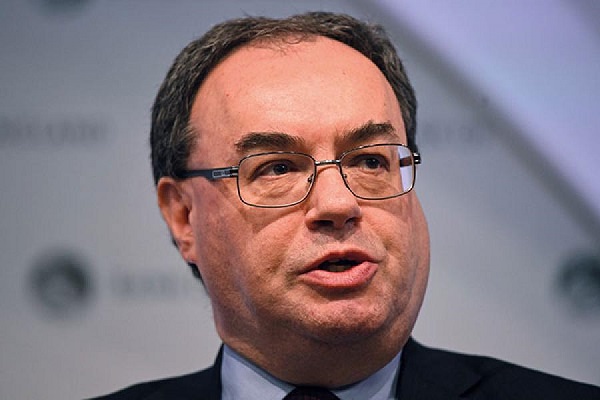Andrew Bailey wins race to become new Bank of England governor
While seen as a favourite for the job, Bailey’s appointment is not without criticism.
23rd December 2019 09:38
by Tom Bailey from interactive investor
While seen as a favourite for the job, Bailey’s appointment is not without criticism.

Andrew Bailey, chief executive of the Financial Conduct Authority (FCA), has been named the next governor of the Bank of England.
Having spent 30 years at the Bank, Bailey was widely seen as the likely candidate to take the reins from the current governor Mark Carney. Bailey will assume the new role on 16 March and is expected to serve an eight-year term.
However, while seen as a favourite for the job, Bailey’s appointment is not without criticism. During his time as chief executive of the FCA, the city watchdog has been accused of ineffectiveness.
Most recently, the FCA has been criticised of an alleged lack of regulatory scrutiny following the suspension of Neil Woodford’ Woodford Equity Income fund.
Specifically, Bailey came under criticism from Ian Sayers, chief executive of the Association of Investment Companies who warned in a letter to the Treasury Select Committee that, in the wake of the Woodford suspension, he was “concerned that the regulator must not become too comfortable” with fund suspensions.
During his time leading the FCA it was also criticised for its report into Royal Bank of Scotland's controversial restructuring business, which Members of Parliament branded a “whitewash”.
The collapse of London Capital & Finance, whose unregulated minibonds led to thousands of pensioners and first time investors losing a collective £236 million has also been a blight on the FCA, prompting a statutory inquiry into the city watchdog.
According to Phil Smeaton, chief investment officer at Sanlam UK, Bailey’s appointment as governor comes at a better time than his predecessor.
Smeaton says: “Mark Carney has overseen one of the most tumultuous period in the UK’s political and economic history. Now however, Boris’ newly revitalised government is set to being certainty to the UK, boost fiscal spending on infrastructure and core public services, and allow business to unleash its pent-up investment demand.
“Such a backdrop is a stark difference to the quagmire the Carney was forced to slog through, and though tackling the economic challenges of a departure from the EU is still the top priority for Andrew Bailey, he will also need to balance the inflationary risks against subdued global growth."
Full performance can be found on the company or index summary page on the interactive investor website. Simply click on the company's or index name highlighted in the article.
This article was originally published in our sister magazine Money Observer, which ceased publication in August 2020.
These articles are provided for information purposes only. Occasionally, an opinion about whether to buy or sell a specific investment may be provided by third parties. The content is not intended to be a personal recommendation to buy or sell any financial instrument or product, or to adopt any investment strategy as it is not provided based on an assessment of your investing knowledge and experience, your financial situation or your investment objectives. The value of your investments, and the income derived from them, may go down as well as up. You may not get back all the money that you invest. The investments referred to in this article may not be suitable for all investors, and if in doubt, an investor should seek advice from a qualified investment adviser.
Full performance can be found on the company or index summary page on the interactive investor website. Simply click on the company's or index name highlighted in the article.
These articles are provided for information purposes only. Occasionally, an opinion about whether to buy or sell a specific investment may be provided by third parties. The content is not intended to be a personal recommendation to buy or sell any financial instrument or product, or to adopt any investment strategy as it is not provided based on an assessment of your investing knowledge and experience, your financial situation or your investment objectives. The value of your investments, and the income derived from them, may go down as well as up. You may not get back all the money that you invest. The investments referred to in this article may not be suitable for all investors, and if in doubt, an investor should seek advice from a qualified investment adviser.
Full performance can be found on the company or index summary page on the interactive investor website. Simply click on the company's or index name highlighted in the article.